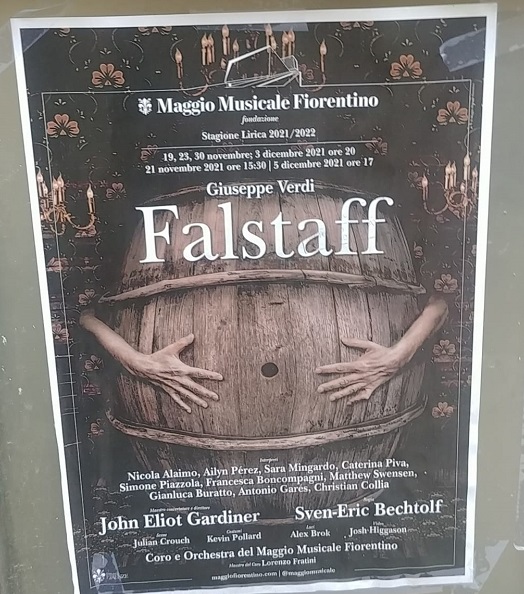
Photo by John Arano on Unsplash
I got a little bogged down in this play (my fifth) in my Shakespeare lineup, partly due to the fact that we took a family jaunt, for the first time in ages, nay since prior to the pandemic, last weekend to Venice for Carnevale, to Fico Eataly to worship at the Italian food shrine, staying in a very satisfying hotel with a magnificent thermal pool in the foothills of the Veneto region. The travel posed challenges to watching a 3-hour production on YouTube, so I brought my Signet Classic with source material and footnotes, and listened to the BBC 3 Shakespeare Sessions audio production of the play (superb). It was harder to follow the action and characters without a visual, but the audio plus text was a decent way to go about it, and left ample room for imagination.
People today don’t love the Shakespeare histories. The works seem, at first blush, too serious, too fact-filled. We fear a pop quiz. In Shakespeare’s day, King Henry IV, Part 1 was a blockbuster, closely followed by Richard II, Richard III, King John, and the Henry VIs. But I am learning that the histories are, in fact, not about dates or battles (against which I certainly maintain no meaningful aversion), but about characters, and how character is destiny (Heraclitus) – and yet character can change, as we see in the form of youthful, partying Prince Hal who is transformed into a serious and worthy king, rising to the occasion when he must. Other characters are more set in their ways – see Falstaff, for a conflicted example of this, or the fantastically named Hotspur, for a chivalric exemplar. It is to watch these characters that the groundlings flocked to Elizabethan theater. How can a man rise or fall? Is he the master of his circumstance, or do his circumstances master him?
Falstaff, prior to this play, was a mystery to me. I confess it here. I had encountered him in opera and in allusion, names recycled in literature, perhaps the off-hand mention of him in King Henry V, for which I had no context without knowing the preceding action. But I did not truly understand the Lord of Misrule that he represented, even as I can recall now various Falstaffs that I have known in my life. The Falstaff, witty Falstaff, who whiles away his hours in quick ripostes and multiple rounds at the bar or at table; Falstaff, ever ready to party and make light of the world, even of himself, even as others mock him. (Everyone is so mean to Falstaff, I told Jason. Why ever does he put up with it?)
Shakespeare loves to mine a good coming-of-age story in the service of both character and plot, and the Prince Hal/Falstaff friendship, set against Prince Hal and his actual father, King Henry IV (for whom the play is named, but in reality the play is all about Hal, his successor and the future King Henry V), Hotspur and his father. We see how these dynamics play out, how resentments are bed, avoidance punished, achievement rewarded. In fact, the dramatic trope of the prodigal noble son come down to Shakespeare from Roman theater penned by Terence and Plautus, and through medieval morality plays, in which a handsome and youthful son passes through a period of unaccountability and dissolution, sin and vice, taverns and wenches. The party scenes are always crowd pleasers, as is the case also in this piece, where Hal and Falstaff and their merry band continuously drink, mock one another, devise amusements, and stage a play within the play, all for the sole purpose of whiling away the seemingly endless hours in a pleasing and sociable environment. Says Prince Hal of one deceit, “‘twould be argument for a week, laughter for a month, and a good jest forever.” Ah, witty youth.
And yet! The audience demands a character arc! And so the young nobleman comes to see the error in his ways, and when duty calls, casts off the mantle of vice to accept the heavy crown of responsibility and discharging the family estate. The crowd loves it! (Prince Hal hands his father a dagger and tells him, “either forgive me or stab me now – I cannot live with your disapproval.”)
As I read and listened to the play, the following questions returned to me: Have we all had Prince Hal years? How did our fathers react? Who were our Falstaffs? and why does Falstaff befriend Young Hal – what’s in it for him? A bar tab? a boon companion? a drinking buddy? One can find these qualities in a lesser friend than a prince. Why risk it, knowing that Hal’s inheritance includes the English throne, and so the betrayal of his friends, and his drinking buddies in particular, is not only imminent, but ensured?
Falstaff is not the slobbering drunk he first seems to be. He is a philosopher, a student of the human condition, who seems an astute observer of circumstance. Indeed, it is from the mouth of Falstaff that we receive such time-honored quotes as “brevity is the soul of it,” and the lesser known but equally valuable, “Is not the truth the truth?”

As Hal’s drinking days draw to a close, he heads into battle, as princes must, and saves his father’s life, are heroes are predestined to do. He dumps Falstaff and Poins, Bardolph and Peto. His friendly affection is transformed into filial devotion, and his father King Henry need no longer wish that Henry Hotspur were his own son, rather than the swilling layabout of Hal’s deep pub years in Eastcheap. Hal trades Eastcheap fun for court intrigue, thus setting the stage for Henry V (I was not angry until I came to Fraaaance!).
Language that delighted me this reading: the slangy Basillus manus (besa las manos, in a lovely nod to how proximate were the cultures of Elizabethan England and her enemy Spain), filching, ‘Zounds! (rhymes with wounds), Gog’s wounds, Tush!, by dint of, Mass!, Marry!, at host (in accord), hest (command), ecce signum, beslubber, the crest of youth. And the bellicose refrain that speaks to endless back and forth on the battlefield among France, England, and Scotland, He that will Scotland win / must first with France begin. That auld alliance was ironclad!
Next week: more histories! Will really cranked out these crowd-pleasers! On a very amused side note, only now have I realized that I have been immersed in the wrong Henry all week, having erroneously swapped out Henry VI for Henry IV. Damn you, wrong Henry! Well, the bard hardly wrote the histories in order. Next week: the correct Henry in chronological order of Shakespearean output, Henry VI, Part 3!




2 Responses
John 18:38. “What is truth?” Pilate asked this of Jesus. Perhaps Shakespeare had this passage deep in his memory when he wrote the line you quote?